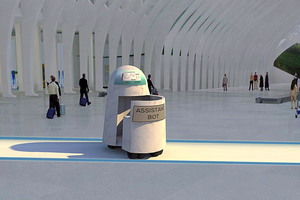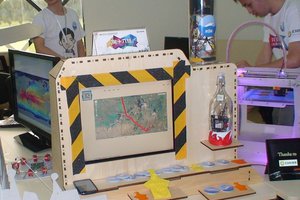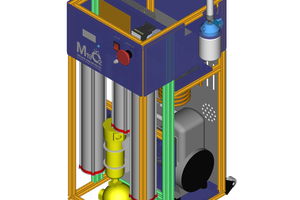1. What's happening to our grocery stores?
- Food Sustainability
Recently, food production and availability have become a concern due to severe climate change. Thus, food sustainability has been emphasized in society nowadays to ensure high-quality, safe and healthy food products while minimizing damage and wastage of these natural resources in the supply chain. However, current operation framework of grocery supply chain with poor stock monitoring and handling only emphasizes product availability, causing most of the products to have poor quality and those that are close to expiry date will be dumped as waste at retailing level. Ultimately, retail sectors contributed to more than 40% of food waste especially in Industrialized countries as stated by Food and Agricultural Organization. As for retailers, food waste will eventually lead to financial loss due to short shelf life of products which is undesirable in a long run.
- COVID-19 Pandemic
Concurrently, with the introduction of COVID-19 pandemic policies in most of the countries, number of manpower has been greatly reduced in retail as the sector involves jobs such as cashier and in-store worker that require frequent contact with client or customer (within 6 feet), inflicting higher risk to be infected with SARS-CoV-2 as stated in OSHA guidelines. Thus, with limited personnel in the sector, higher workload will be assigned to remaining workers. At the same time, retailers will have to prioritize employee's safety while maintaining the usual business activities through workforce management and operation optimization to minimize human-human interaction while maintaining overall efficiency.
- Store Managing
During the COVID-19 pandemic, some of the physical retail activities has been allowed to operate but with some restrictions. One of the common policy is to shrink down the number of worker for working in the store. Obviously, that will putting extra load on the worker due to insufficient manpower. For instances, a worker in the cashier required assisting in calculating, packaging and payment handling process. In traditional way, extra cashier line will open if there are too many customer need to be handle but for now it is not an available option. Besides that, stock managing is another task that required high manpower. Stock managing is the daily routine process that including: environment checking, product inspection and stock arrangement. In fact, bad stock managing will lead to damaging the existing stock or shorten the on shelf time of the products.
2. Solution
Our proposed system will include an IoT based inventory management system and a computer vision based checkout system to specifically mitigate different issues arise in existing grocery stores:
- Food sustainability
With our IoT based inventory management system that employs sensor-driven monitoring mechanism, condition of products can be constantly logged, displayed and controlled easily on cloud-enabled platform. This will help the retailers to prolong on-shelf time of products and make decision accordingly when item is close to expiry date. For instance, retailers can apply discount to item that are approaching expiry date through the platform and updated price will be displayed on corresponding IoT-enabled price tag. As a result, sales can be promoted and product will not end up as waste.
- COVID-19 pandemic
By implementing computer-vision based checkout system, products are to be automatically recognized and handled without human involvement. This will aid in minimizing interaction between cashier and customer while preventing damage to products by customer, which will indirectly avoiding food waste. Additionally, checkout efficiency can be improved to prevent long queue in the store which may impose risk of COVID-19 infection due to high human density. Concurrently, by adopting cashless payment such as QR Code or E-wallet, cash handling can be avoided to eliminate the spread...
Read more »
 Shreyasvi Natraj
Shreyasvi Natraj
 Weishan (Wesley) Yang
Weishan (Wesley) Yang

 Anool Mahidharia
Anool Mahidharia